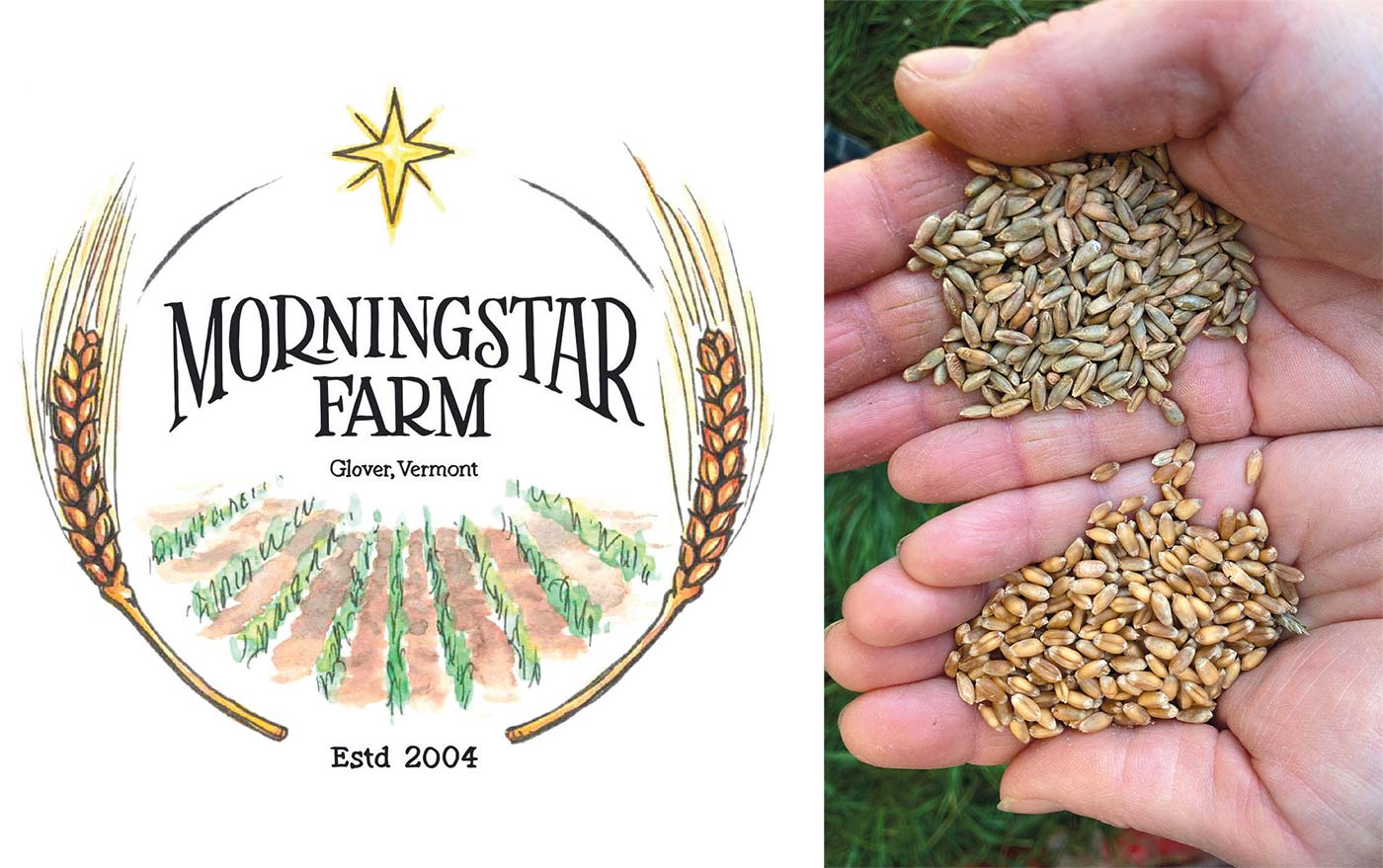Morningstar Farm, Glover
As stores ran out of flour, credited to a massive spike in home baking, Seth knew he had grain silos filled with beautiful wheat. If he could find a way to mill it into flour, he could help his community—and create a value-added product that would help his bottom line.
When Seth Johnson took over his family farm in Glover in 2003, he knew that diversification would be key to the farm’s success. That meant planting dry beans, corn, wheat, and rye while continuing to raise Angus beef. Morningstar dry beans have become a staple at co-ops throughout Vermont. However, Seth sold his grain on the commodity market, never knowing where it would end up or how it would be used. It was simply a reliable income stream from a distant buyer.
Then the pandemic hit. As stores ran out of flour, credited to a massive spike in home baking, Seth knew he had grain silos filled with beautiful wheat. If he could find a way to mill it into flour, he could help his community—and create a value-added product that would help his bottom line.
So he ordered a mill from his friend Andrew Heyn at New American Stone Mills. The pair made a barter: Andrew traded his prototype mill for 4 tons of wheat that Andrew and Blair Marvin of Elmore Mountain Bread would later mill into flour for their own bakery. Talk about the Vermont way of doing business among friends!
In addition to 300 acres of hay, Seth grows 150 acres of grains and dry beans and 30 acres of sunflowers that are cold-pressed into oil, sold in some retail locations in northern Vermont. Morningstar Farm is certified organic through NOFA-VT. Seth runs the farm with his wife, Jeannette, who manages the myriad aspects of the business side. “Morningstar is very much a family operation. I’m the dreamer while Jeannette is practical. We balance each other well.” Their four children all pitch in at various levels around the farm. The family agrees that having the ability to mill their own grain has been a game-changer for the farm. The two oldest children, Maryann and Herluf, help their parents by operating the mill and loading the certified organic flour into bulk and retail Morningstar bags weekly to ensure its freshness.
Winter wheat is planted in September and grows a couple of inches before going dormant for winter. Spring wheat is planted in April or May. Both are harvested in late summer when the grains are firm and crunchy, not soft or chewy. The harvested wheat is run through a grain cleaner that separates the seed head (wheat berry) from the chaff, loaded into a round galvanized steel grain bin, and then dried with hot air blown through perforated holes on the floor of the silo.
Seth takes samples from each batch of grain and sends them off to the University of Vermont’s Grain Lab where they get tested for moisture, weight, starch, protein, and potential toxins. An entire year’s crop can be made or broken by the results of this independent, third-party testing. It takes a week for results to come back, and farmers often equate that nerve-wracking period to waiting on a pregnancy test. “Our farm’s reputation is on the line, and we’re not messing around,” Seth says. “Consumers need to know they can trust the high quality of our grains.”
“It gives people happiness and peace knowing where their food comes from. They can drive past our fields and see the grains that become their flour.” –Seth Johnson

Seth Johnson holding winter rye (top) and wheat berries (bottom).
Grain that doesn’t pass the test for human consumption can be sold for livestock feed, as animals have a higher tolerance for lower-quality grain. “Having a secondary market for grain is super important for a place like Vermont where we have an inconsistent climate with extreme weather variations, from torrential rains and floods to persistent droughts,” Seth explains. Seth grinds and blends livestock feed using lower-quality grain with some first-quality grain added for good measure. The feed is sold for cattle, horses, sheep, goats, and poultry. “Having multiple crops and alternative options is our security system because not every year goes according to plan.” Seth also sells hay and straw from his grain crops.
“It gives people happiness and peace knowing where their food comes from. They can drive past our fields and see the grains that become their flour. We as farmers get equal satisfaction knowing where our food goes, knowing that people will be nourished by our efforts. Whether it’s King Arthur picking up a huge pallet of grain or a local family stopping by to purchase a 50-pound bag of freshly milled organic flour that will sustain them through winter. Keeping our community healthy and happy is a large part of why we do what we do.”




